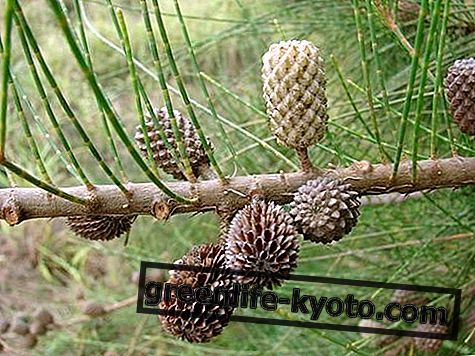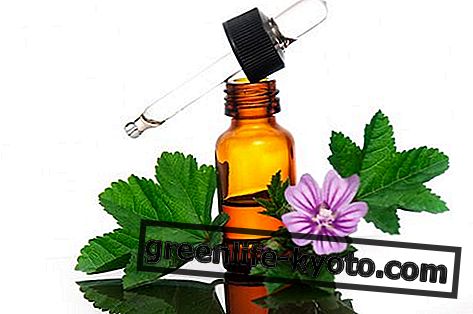Raspberry ( Rubus idaeus ) is a plant of the Rosaceae family useful for circulation, purifying blood and soothing gastrointestinal disorders. Let's find out better.
>
>
>

Raspberry properties
Raspberry fruits, when eaten fresh as a table fruit, provide the body with excellent amounts of vitamins A and C of citric acid, pectin and fructose. Beyond the food use from which an antioxidant action is obtained, raspberry is also one of the most used phytotherapics.
The leaves contain flavonoids (rutin) and are indicated, in the form of infusions or decoctions, in the treatment of water retention, for their diuretic properties ; thanks to the presence of tannins we recommend its use in case of diarrhea, as they exert an astringent action ; while due to its anti-inflammatory properties, raspberry leaves are used in the presence of stomatitis and intestinal inflammatory states.
The glycerine macerate, or gemmoderivato, obtained from the buds, acts on the female hormonal apparatus. It is, in fact, a regulator of the hypothalamic-pituitary-gonadal axis and of ovarian secretion, which is used in all the dysendocrinias of the sexual sphere of women and in any need for regularization of the menstrual cycle.
Its intake is therefore indicated in the premenstrual syndrome associated with breast tenderness, anxiety, nervousness, water retention, acne, because it exerts a balancing action on the neurovegetative system . The antispasmodic and decongestant property is well used in the treatment of dysmenorrhea, that is painful menstruation, due to its ability to calm uterine spasms.
As a re-balancer of the female hormonal system it is also indicated in the case of amenorrhea, or the lack of menstruation, and irregularities in the menstrual cycle, including pubertal delays in menarche; in the treatment of ovarian cysts, polycystic ovaries, and fibroids. Finally, it is recommended for all the disorders that accompany the menopause period such as irregularities in the cycle, flushing, mood swings and depression.
Method of use
INFUSION : 1 tablespoon of raspberry leaves, 1 cup of water
Pour the leaves into the boiling water and turn off the heat. Cover and leave to infuse for 10 min. Filter the infusion and drink it away from meals to take advantage of the diuretic action; at the time of need in case of diarrhea; use it as a lotion for gargling in case of stomatitis and sore throat.
The glycerine macerated gems : 40-50 gc in mid-morning and 40-50 gc in mid-afternoon, away from meals, due to its properties on the female hormonal system.
Contraindications of raspberry
Raspberries are to be avoided in case of gout or kidney problems because they contain oxalic acid.
Furthermore, it can interact with iron-based drugs, limiting their absorption. In the event of pregnancy and lactation, raspberry is well tolerated but it is always good to consult the gynecologist before resorting to herbal remedies.
Discover the properties, calories and nutritional values of raspberry fruits

Description of the plant
Thorny shrub with stoloniferous stock with biennial sprouts. The stem (up to 2 m.) Is greenish blue, woody, erect and endowed with thin and reddish spiny spines.
The leaves are intense green on the upper side, and white and hairy on the lower one, with serrated or serrated margins, full of ribs, rounded at the base and pointed at the extremity.
The flowers, solitary or gathered in small clusters, are white sometimes stained with pink. The fruits are pendulous, formed by a set of fleshy drupes containing a small seed, joined together, of red or white color.
The raspberry habitat
The raspberry grows spontaneously on the edge of the mountain forests, along the banks of the streams, preferably in the hilly areas and in the pastures up to 2000 meters of altitude. Raspberry is common in Europe and in temperate and northern America, and is cultivated in various regions with a mild climate.
Background
The use of raspberries as an edible fruit dates back to very ancient times, and it is certain that the Greeks and Romans ate it with "great delight". The scientific name Rubus idaeus translates the ancient name of " bramble of Mount Ida ".
Raspberries are very appreciated for the preparation of jams, syrups and from them the well-known liqueur called " ratafia " is also obtained. In folk medicine these fruits were used for their relaxing action on the nervous system.
At one time the fruits of these plants were also used to perfume wine and still are used to flavor drinks, liqueurs, and syrups.
Read also
> Rubus idaeus, the bud-derived raspberry against premenstrual syndrome
Image | Wikimedia
In collaboration with Erboristeria del Pigneto












